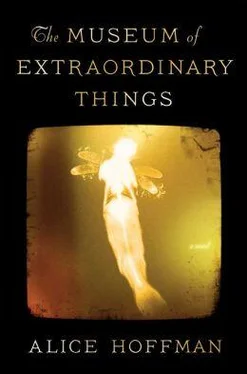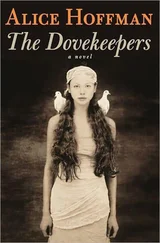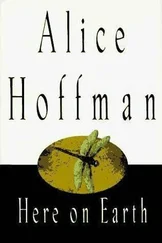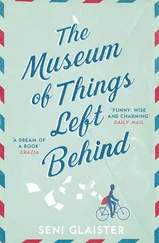By then I was eleven years old. I had swallowed my share of bitterness, but a portion had stuck in my throat and turned to rage. That rage was there night and day, looming at all hours. Sometimes I would see the owner’s children come to visit their father in a horse-drawn carriage, a boy my age and a younger girl. I felt a hatred inside me that seemed too large for me to carry. My father’s fingers bled every night, and he soaked them in a glass of warm water to soften the calluses. One day I was sent to the storeroom for thread. As I walked along the corridor, I heard the owner’s children laughing and playing in their father’s office.
I crept nearby to spy on them. They were seated behind a large, handsome oak desk playing cards, using real pennies to bet. The girl was wearing a rabbit coat over a ruffled dress, and the boy was saying, “That’s not fair, Juliet, you’re cheating. You have to play by the rules.” Perhaps my stomach rumbled, or I breathed out my hatred in a foul gasp. They looked up to see me in the doorway, dressed in my father’s old black trousers, a scowl on my face. From their expressions I could tell they saw me as menacing. Immediately, the boy held out his watch. I didn’t think twice. If they expected me to be a robber, then I would accommodate them. I grabbed the watch from the owner’s son and stuffed it in my pocket. Luckily, I no longer carried my prayer book.
My victim was also eleven years old. For some reason he told me his age, and I looked at him as if he were mad. Why would he think I cared? Did he expect me to treat him more tenderly because of it? The little girl was crying. Her face was pinched and I saw she wasn’t pretty at all. I wished I could take her coat to give to someone who deserved it, but I didn’t have the nerve. I thought she might start screaming and alert the supervisors and I’d wind up in the Tombs prison.
“Keep quiet,” I demanded, and miraculously she obeyed and held a hand over her mouth. Her eyes, now rimmed with terror, were a dark blue that made me think of the sky in the forest. I felt a surge of pity for her, and because of this I almost returned the watch, but I could hear the sewing machines rattling away in the workroom. The sound made my hatred burn brighter.
“Are you a kidnapper?” the boss’s son asked. He had a matter-of-fact tone, as though he’d been expecting such an encounter and had, in fact, been warned about people like me.
“I wouldn’t want you on a silver platter,” I informed him. I would never want to be a boss and be at fault for the cruelty put upon workers. “But if you ever tell anyone about this I’ll kill you. Understand?” I could feel a poisonous meanness pooling inside me. In a matter of instants my conduct had led me to a viciousness I hadn’t known I was capable of. “I’ll find you wherever you are. Even if they lock me in the Tombs for fifty years, I’ll come after you and slit your throat. Understood?”
“Understood.” The owner’s son’s voice was surprisingly deep, as if he were a man masquerading as a boy, but one who was easily coerced into giving something precious away.
I carried his watch in my coat pocket from that day on. I have it still, nearly fifteen years later. It is the most precious thing I have ever owned. On the back there remains an inscription. “To my dear son.”
The night I stole the watch I came home late. My father was eating soup at our table. We had soup when there was nothing but potatoes and onions in our measly larder. My father shivered and wore a blanket around him. When I put the watch down in front of him, he raised his eyes, as if I was a stranger. And in fact, I was.

At night, I began to do as I pleased. If my father knew, he said nothing. Most likely he already understood that my path led away from him. I slinked out of our room, down five flights of stairs, into the dark streets, drawn to the roughest riverside areas as if I were a fish myself. I had stopped saying prayers with my father. He was an educated man who would have been a teacher if he’d stayed in our village. He still maintained his studies at a scholar’s level. I felt his disappointment in me on a daily basis. I often stood outside the shul and watched him gathering with the other men for the evening prayers. These men were overwhelmed by the huge, magnificent Eldridge Street Synagogue, reminiscent of a cathedral with its extraordinary rose window. They preferred their own place of worship, a small red-brick building in the shadow of the Williamsburg Bridge with a congregation made up of men from our town in the Ukraine. People called it the Tailors’ Shul. I never went inside, though I was supposed to be studying with the rabbi’s assistant. I slipped off my skullcap and kept it in my pocket. My father had begun to turn away when he saw me on the corner.
I had a secret life, one that earned me cash enough for us to live more comfortably. I wanted more than soup. That was why I began to work for Abraham Hochman, known as the Seer of Rivington Street, the author of such pamphlets as “Fortune Teller” and “The Key to Prophecy,” which sold for ten cents a copy. Hochman lived not far from us, in a large apartment with indoor plumbing. It was said he was fearless, hired to tell which horses would win at several racetracks by the mighty Sullivan mob, run by Big Tim, a kingpin of the Tammany political machine, the corrupt arm of the Democratic Party. His main business, however, consisted of mind reading, the interpretation of dreams, and, most important, finding the lost. Perhaps it was fate that he should become my employer. I had often seen him, overweight but stylish at all times, surrounded by his devoted followers, mostly adoring women who needed his help, many of whom got down on their knees before him, begging for his wisdom. Hochman owned the Hall of Love, one of the many wedding chapels on Sheriff Street, where he drew up ketubahs, Jewish wedding contracts that had been beautifully illustrated, often by Jewish-Italian artists. Here he presided over marriage ceremonies, though he was neither a rabbi nor a judge. He was considered to be a wizard and was, in my estimation, long before I met him, a fake. He was best known for tracking down missing persons, most often husbands and fiancés, men who had left behind their girlfriends or wives and families in Russia or Poland to come work in New York. Such men promised to send for their loved ones once they were settled, but instead disappeared into their new lives, pulling their bowler hats over their brows, and the wool over their wives’ eyes. There were so many of these devious individuals that the Daily Forward, the Jewish newspaper, had taken to printing a gallery of missing men. Women who had been deserted sold their wedding rings at Fass’s jewelry store on Clinton Street, right around the corner from Rivington, so they might pay for the Wizard’s services. It made it all the more difficult that they had to walk past H. Goldstein’s shop, which was famous for fashionable wedding dresses and silk hats made to order, on their way to sell what little they had remaining from their own failing marriages. Once they were in New York, these women could not return to their old lives—for even American Jews with passports were not allowed to pass over the border into Russia—not that they would have wished to do so. They wanted what they’d been promised, though they’d been cheated by those they loved best.
Hochman vowed that the angels led him to these lost husbands and fathers and fiancés, but in truth he employed dozens of boys as runners, young spies who tracked down those wretched individuals who had deserted their families. He taught his boys the tools of discovery for seeking out lowlifes: interview the owners of taverns, whorehouses, flophouses, hunt the alleys and tenement buildings, hang around the liquor store on Delancey Street that sold Vishniak whiskey, favored by men who’d come to New York from the Ukraine. We asked the right questions because Hochman taught us what they were. If we had a photograph we’d show it around, even if it was an old daguerreotype and the image was fading around its silvered edges. Do you know this man? we’d demand of as many people as we could find who would listen to our pleas. It will be worth your while to tell us, we went on. He’s won a contest, an award, a free meal, and there may be a reward in it for you as well if you take me to him. Did he grow up in your village back home, do you have pity for his family, are you sure you yourself aren’t running from something? We were posted in the places where men who disappeared were known to gather, whether they were drowning their sorrows or creating new identities. Once a boy had done his dirty work and the good-for-nothing individual had been located, Hochman claimed to have found the missing person with his psychic skills.
Читать дальше













